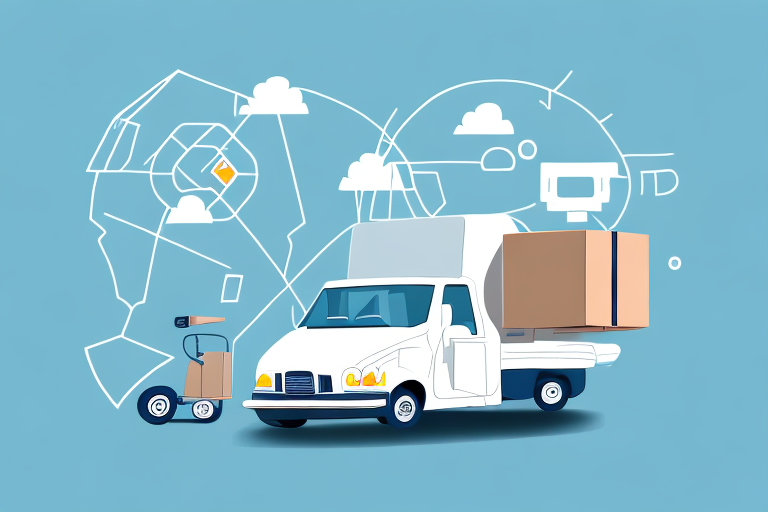Introduction to Delivery as a Service (DaaS)
Delivery services have been an integral part of our lives for centuries. From traditional mail delivery to food delivery, ensuring that goods reach their destination timely and conveniently has always been crucial. In today's fast-paced society, the demand for delivery services has only grown, driven by advancements in technology and changing consumer expectations. Delivery as a Service (DaaS) is emerging as a revolutionary model, transforming how businesses manage their delivery operations.
The Evolution of Delivery Services and Emergence of DaaS
Over the past few years, delivery services have undergone significant transformations. The shift from traditional delivery methods, such as regular mail and scheduled courier services, to on-demand platforms like UberEats and Postmates illustrates this evolution. On-demand delivery services provide instant delivery, often within an hour or less, catering to the needs of modern consumers.
This shift has paved the way for DaaS, a model where businesses can outsource their delivery needs to specialized providers. DaaS leverages on-demand delivery trends, offering businesses a scalable and flexible solution to manage their delivery operations efficiently.
How Delivery as a Service (DaaS) Works
Delivery as a Service (DaaS) is a cloud-based delivery model that offers businesses an all-in-one solution for managing their delivery processes. By partnering with a DaaS provider, businesses can outsource their delivery operations, allowing them to focus on their core competencies.
DaaS providers offer a range of services, including same-day delivery, order tracking, real-time delivery updates, and automated customer communication. Operating on a pay-per-use model, businesses only pay for the deliveries they make, making DaaS a cost-effective and flexible solution.
Benefits of Implementing DaaS for Your Business
Implementing DaaS offers numerous benefits, enhancing both operational efficiency and customer satisfaction.
Increased Efficiency and Scalability
DaaS providers utilize advanced technologies, such as machine learning and artificial intelligence, to optimize delivery routes and reduce delivery times. This results in faster and more efficient deliveries, leading to higher customer satisfaction and repeat business. Moreover, DaaS allows businesses to scale their delivery operations up or down based on demand without significant investments in infrastructure.
Cost Savings
By outsourcing delivery operations to a DaaS provider, businesses can save on costs related to maintaining their own fleet and logistics systems. The pay-per-use model ensures that businesses only incur costs when deliveries are made, providing a flexible and budget-friendly solution.
Technology Behind DaaS: AI, Automation, and Real-Time Tracking
Technology is at the core of DaaS, enabling providers to offer efficient and reliable delivery services.
Artificial Intelligence and Machine Learning
DaaS providers deploy AI and machine learning algorithms to optimize delivery routes, predict delivery times, and manage inventory. These technologies continuously learn and improve delivery processes, enhancing overall efficiency.
Automation
Automation plays a crucial role in communication and operational workflows. Automated systems handle order tracking, real-time updates, and customer notifications, ensuring seamless interactions and timely delivery information.
Real-Time Tracking
Real-time tracking allows customers to monitor their deliveries in real-time, providing transparency and enhancing trust. This feature is highly valued by customers and contributes to improved satisfaction and loyalty.
Implementing and Scaling DaaS: Best Practices and Challenges
To effectively implement and scale DaaS solutions, businesses should adopt strategic practices and anticipate potential challenges.
Best Practices for Maximizing Efficiency
- Analyze delivery data to identify areas for improvement.
- Provide accurate and detailed delivery instructions to DaaS providers.
- Collaborate closely with DaaS providers to optimize routes and reduce delivery times.
- Implement real-time tracking and monitoring systems to ensure timely deliveries.
Addressing Common Challenges
Businesses may face challenges such as communication breakdowns with DaaS providers, ensuring delivery accuracy, and navigating legal and regulatory requirements. Establishing clear communication channels, setting performance metrics, and working with legal counsel can help address these issues effectively.
Cost Structure and Legal Considerations
Understanding the cost structure and legal landscape of DaaS is crucial for businesses considering this model.
Cost Structure of DaaS
DaaS typically operates on a pay-per-use model, where businesses pay based on the number of deliveries made. Costs can vary depending on factors such as the size and weight of items, delivery distance, and the level of service required. Businesses can optimize costs by negotiating rates, bundling packages, and leveraging route optimization services provided by DaaS providers.
Legal and Regulatory Compliance
Implementing DaaS involves adhering to various legal and regulatory requirements, including local, state, and federal laws, insurance mandates, and liability considerations. Businesses should collaborate with their DaaS providers and legal advisors to ensure full compliance and mitigate potential risks.
Choosing the Right DaaS Provider for Your Business
Selecting the appropriate DaaS provider is vital for the success of your delivery operations. Consider the following factors when making your choice:
- Service Offerings: Ensure the provider offers the services that align with your business needs, such as same-day delivery, real-time tracking, and customizable delivery options.
- Pricing Models: Compare pricing structures to find a provider that offers cost-effective solutions without compromising quality.
- Technology Capabilities: Evaluate the provider's technological infrastructure, including their use of AI, automation, and real-time tracking systems.
- Customer Service: Choose a provider known for excellent customer support and reliability.
- Industry Experience and Reputation: Consider providers with proven experience in your industry and a strong market reputation.
Case Studies: How Companies are Successfully Leveraging DaaS
Numerous companies across various industries have successfully implemented DaaS, reaping significant benefits.
Walmart
Walmart has partnered with DaaS providers to offer same-day grocery delivery services, enhancing customer convenience and satisfaction. This partnership has allowed Walmart to efficiently manage high-demand periods without overextending their own logistics capabilities.
Domino's
Domino's has integrated DaaS solutions to optimize its pizza delivery process. By leveraging advanced routing algorithms and real-time tracking, Domino's has improved delivery speed and reliability, leading to increased customer loyalty.
Other Examples
Companies like Amazon and Target are also utilizing DaaS to streamline their delivery operations, ensuring fast and reliable service to their customers.
Future of Delivery as a Service: Trends and Predictions
The future of DaaS is poised for continued growth and innovation, driven by technological advancements and evolving consumer expectations.
Emerging Technologies
Advancements such as drones and autonomous vehicles are expected to revolutionize DaaS, enabling even faster and more efficient deliveries. Companies are investing in these technologies to enhance their delivery capabilities and reduce reliance on traditional logistics infrastructures.
Growing Demand for On-Demand Services
The demand for on-demand delivery services is projected to keep increasing, fueled by the rise in e-commerce and the expectation for immediate delivery. Businesses that adopt DaaS solutions will be well-positioned to meet this growing demand.
Sustainability Initiatives
As environmental concerns become more prominent, DaaS providers are focusing on sustainable delivery practices. This includes using electric vehicles, optimizing delivery routes to reduce emissions, and implementing eco-friendly packaging solutions.
Conclusion
Delivery as a Service (DaaS) offers a transformative solution for businesses looking to optimize their delivery operations. By leveraging advanced technologies and partnering with specialized providers, businesses can achieve increased efficiency, scalability, and cost savings. Implementing DaaS allows companies to focus on their core operations while ensuring reliable and swift delivery services to their customers.
To succeed with DaaS, businesses should carefully select a provider that aligns with their needs, ensure compliance with legal and regulatory requirements, and continuously refine their delivery processes to maximize efficiency and customer satisfaction. As the delivery landscape continues to evolve, embracing DaaS will be key to staying competitive and meeting the ever-changing demands of today's consumers.




















